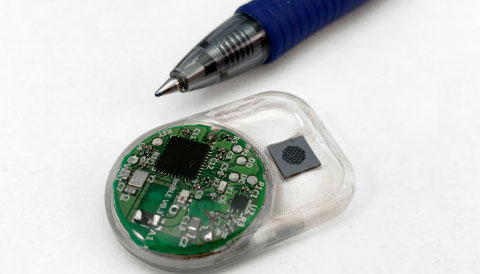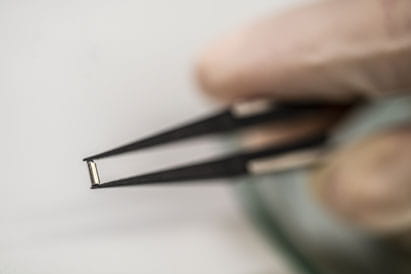Nanomedicine Research
Remote-Controlled Drug Delivery Implant May Help Chronic Disease Management

Houston Methodist scientists led by Alessandro Grattoni, PhD, successfully delivered dosages of chronic disease medications using a nanochannel delivery system controlled remotely via Bluetooth technology. Learn More>
Space Study Focuses on Potential Biomedical, Aerospace Applications

Houston Methodist researchers are test-driving Lamborghini's carbon fiber materials in space. Learn more>
Houston Methodist scientists led by Alessandro Grattoni, PhD, have developed a nanodevice to deliver immunotherapy without side effects to treat triple-negative breast cancer. Learn More>

Congratulations to Team Nanoblation on their 1st Place award in the Translational Innovations Competition Cardiovascular Nanomedicine Edition presented at the George and Angelina Kostas Research Center for Cardiovascular Nanomedicine Annual International Meeting. Dr. Carly Filgueira (PhD), an Assistant Professor in the Nanomedicine Department - Houston Methodist Research Institute, teamed up with Dr. Nilesh Mathuria (MD, FHRS), an Associate Professor of Clinical Medicine – Division of Cardiac Electrophysiology at Houston Methodist Hospital. The award was made possible by a generous gift from the Kostas family. Cardiac ablation uses heat energy through radiofrequency ablation, or cold energy through cryoablation, to stop erratic impulse propagation and to restore a normal beating rhythm. It is performed via a catheter inserted through a vein or artery under image guidance to reach the abnormal heart tissue. The procedure is exposed to challenges related to catheter slippage or inadequate depth tissue reach, resulting in arrhythmia recurrence. The winning team used innovative heat-emitting nanoparticles enabling a targeted ablation that covers the entire arrhythmia-causing region.
More To Explore


